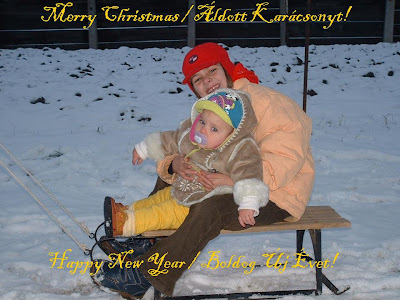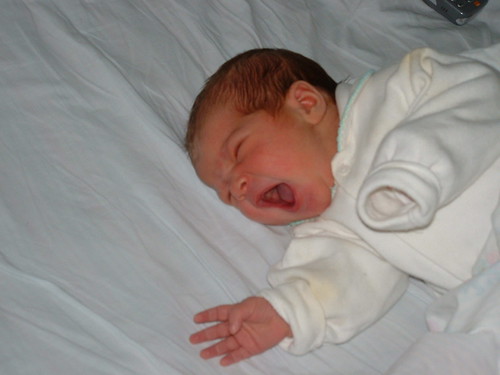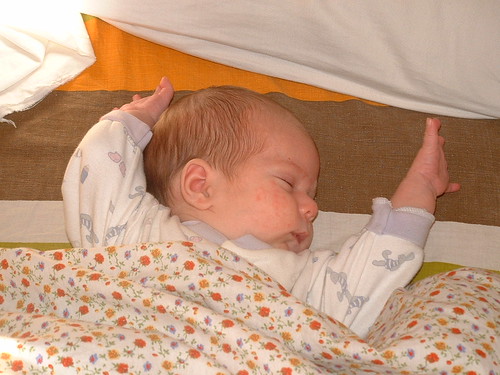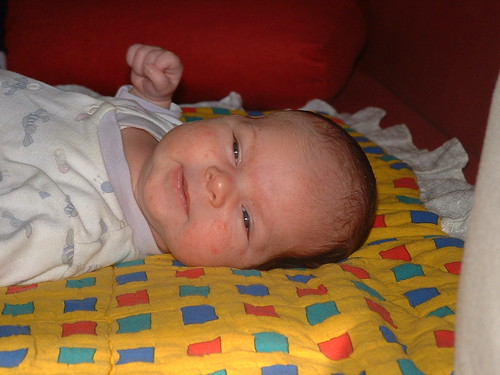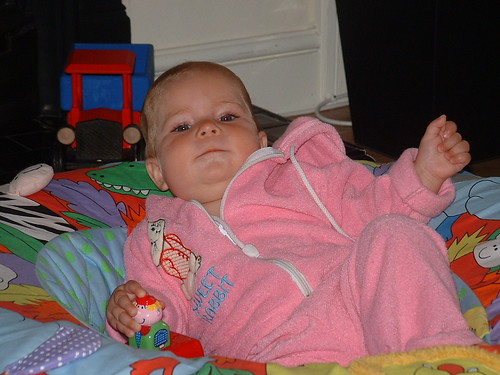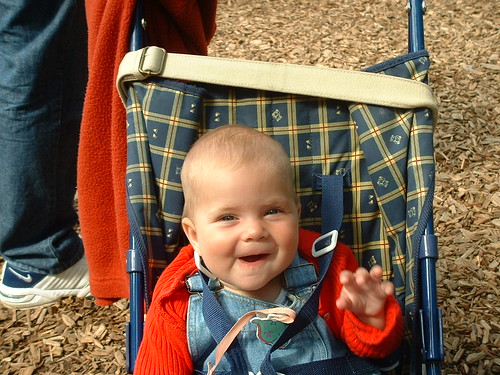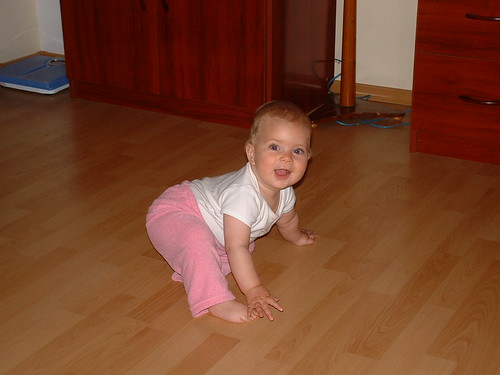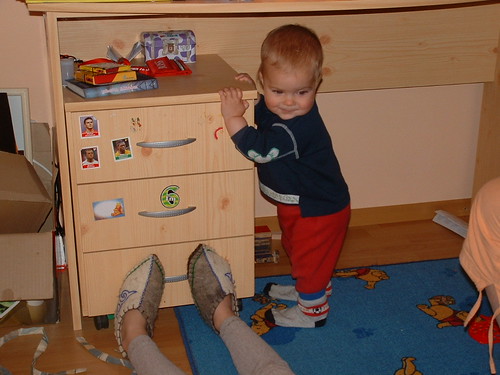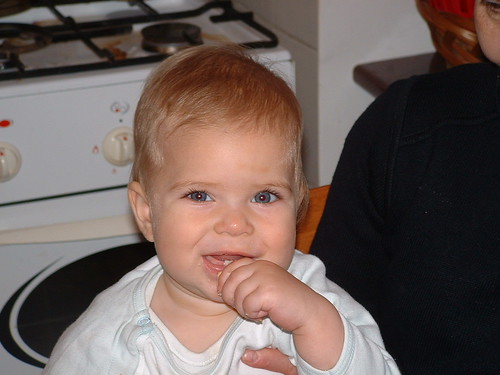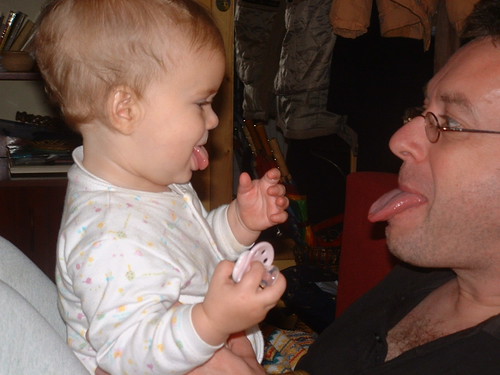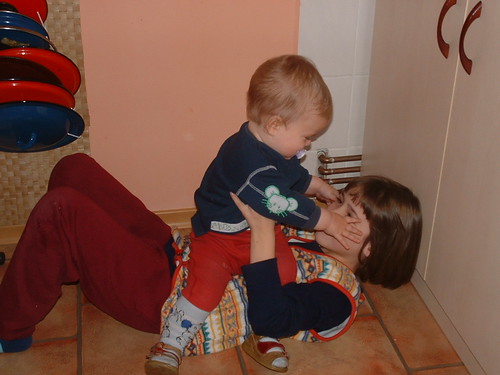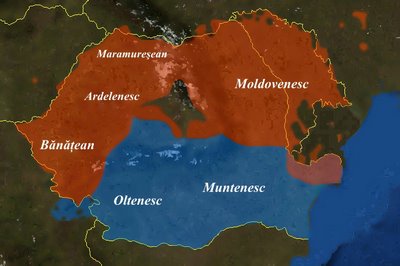Is it just me or is the word "meme" really,
really overused? And more than just overused, but used really badly? And does it represent the fastest that a word has been perverted and come to be almost meaningless? It was only invented in the mid 70s after all, and as I understand it it means something like a cultural item that gets passed down through generations (basically a cultural version of a gene). Thus the passing of a set of questions from one blog to another is in no way related to a "meme", and I wish here and now to state my objection to that term being used to describe this practice.
Far better to use the other commonly known word for this that I have seen - "blog tag" (or though when I was a lad it was called tig rather than tag, so for the purposes of this entry I will use
blog tig).
I have been aware of this blog tig game for some while through the reading of other blogs, and have pretended to look upon with mock disdain for this little game, while all the time feeling desperately sad that no one ever tigged me. That is,
until now, and I have been saved from a life of ignominious tig free blogging, by Romerican. Finally I have arrived, finally I can say my blogging experience is complete.
So, without further ado, since I am now "it", here are my answers to the questions posed:
Three things I love about Csíkszereda The market - gorgeous fruit, delicious vegetables, intercultural interactions, friendly people, open air browsing, the place where Romania converges on the town, with stall holders from all over the country. I have heard from four different people that the rumour is it will all be closed down now that Romania will be in the EU, but I suspect (hope to hell) that they are wrong and this is just one of these ridiculous rumours that go on with EU accession (I remember when the rumour in the UK was that bananas would have to be not too curved under EU rules. And obviously that was bollocks too)
Bilingualism - not mine, obviously, since I'm a bit crap, but everybody else's. I think it's cool that so many people here speak two languages fluently. I spoke to a Romanian couple who live here recently who put the (Hungarian) Minimax cartoon channel on for their young daughter because they want her to learn the language, even though they themselves don't speak a word of it. It's all cool.
Small town/Big fish - I like the fact that it's a small town, so you know everything you need to know, and everyone you need to know (that last one is important in Romania, where it's who you know rather than what you know). But I also like the fact that the town has more importance than a town of similar size would have, thanks it to being the county town of Harghita and thus the de facto centre of the autonomy for Székelyföld movement. Plus it's the market/hub for a large region, so the population that use the town is much greater than the actual number of people who live here. And finally the annual pilgrimage makes it very lively - at least for a weekend.
Three things I hate about CsíkszeredaThe cold - I can handle the cold for the most part, even when it drops down below -30, but it's just the sheer relentlessnees of it. Month after month after bloody month.
Nationalists - Hungarians who bang on about how terrible Romanians are and teach their kids to hate the language (and in so doing effectively hold back their own children - idiots), and Romanians who are so aggressively pissed off about living in a town in their own country in which they are not the majority that they take it out on everyone they meet, and also whine and complain to the national media (and the PRM) about how terrible it is to live here like some kind of oppressed minority. Give me a break, scummers.
Lack of things to do - what can I say, it's the flip side of small town advantages. We also have small town disadvantages.
Three places in Csíkszereda I like to go with friends
Friends? What are they? Going out? What's that all about? I have children.
Lobogo Panzio - not actually in the town, but a great restaurant in the mountains half way to Udvarhely. Great food, great location.
Outside on Petőfi Utca - any of the terrace cafes on a sunny day. Enjoying the weather, watching the world go by, on the street that makes Csíkszereda a good place to be.
Gambrinus Csarda - outdoor beer garden type place with large barbecue thing going on. Good place to sit and enjoy a nice large glass of cold draught Ciuc of an evening (and at 20,000 ROL for a large one, you can't really go wrong can you?)
Three things an outsider would not understand about CsíkszeredaLanguage - The fact that the first language of the city is Hungarian and not Romanian - even though we're miles and miles from Hungary.
Football - Is there any other European city in which football is so unimportant? It still baffles me, to be honest. It's all about ice hockey, and the local football team aren't even in Romania's third tier (which means that they're really really bad - there are 3 divisions in the second tier and 9 in the third.)
The main square - a vast windswept plaza stuck in the middle of the town for no reason (or at least no reason known to anybody but Ceausescu, as it was one of his architectural masterstrokes). Not attractive, not a nice place to hang out, just
not, basically.
Fanciest neighborhood in Csíkszereda: Csiksomlyo. Not really a meighbourhood, technically, but rather a village which has become an effective suburb of the town. Where all the rich people now live.
Ugliest neighborhood in Csíkszereda: Probably the Mosquito district, which was built on a swamp (hence the name). But this town is saved from real ugliness by the mountains around - however ugly the buildings are, you can always look up and be reminded of the world beyond the communist era apartment buildings.
OK that's done. Now to pass on this blogging virus (more apt than a meme I feel) - to
Paul and to
David (the latter one in a probably vain attempt to get him back to his blog).
